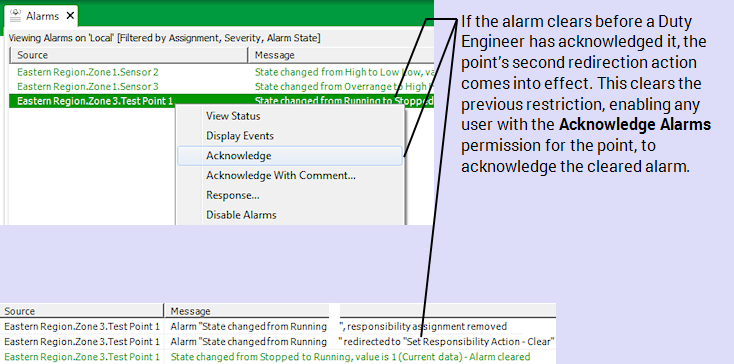This example demonstrates how Set Responsibility Actions might be used to restrict the ability to acknowledge alarms, and clear that restriction under specific circumstances.
Example:
A point on a particular ClearSCADA system is configured to use alarm redirection, such that:
- The ability to acknowledge an alarm is restricted while the alarm condition exists, to those users that are in the User Group ‘Duty Engineers’
- The above restriction is removed if the alarm condition clears, so that any user with the appropriate permissions and access to the alarm can acknowledge the cleared alarm.
Two Set Responsibility Actions are configured—one for each of the above requirements:
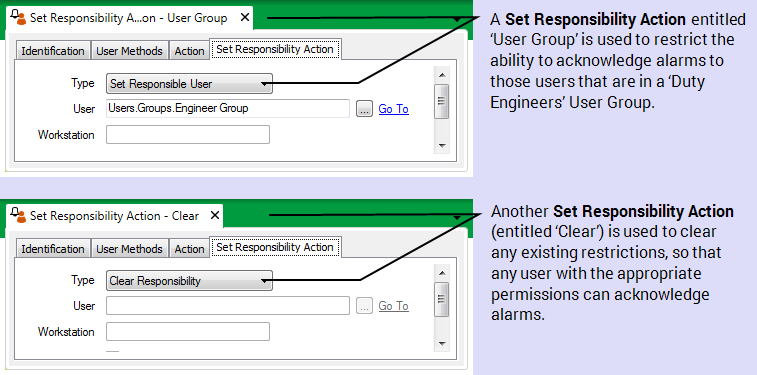
The required alarm restrictions are specified on the Redirection tab on the point’s configuration Form:
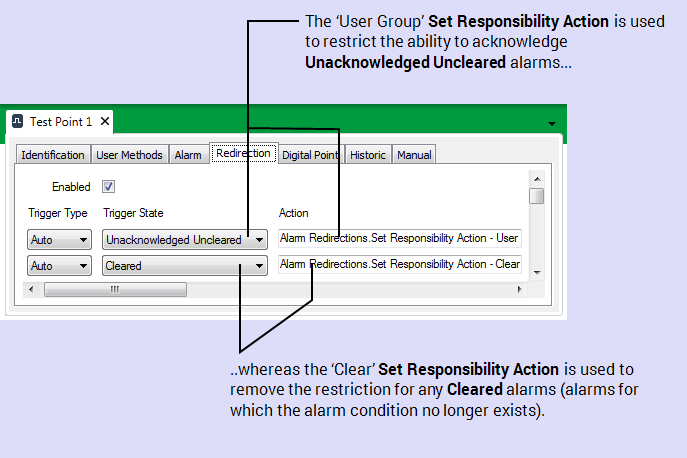
The configuration is saved.
When the point goes into alarm, most users can see the alarm, but cannot acknowledge it:
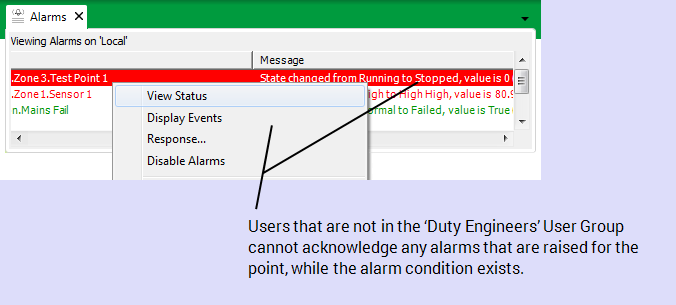
(On a system that is configured to use a different background color to indicate whether an alarm can be acknowledged, any unacknowledged alarms that users do have the ability to acknowledge will have a different background color on alarm displays. For more information, see The Background Color used on Alarms Lists and the Alarm Banner in the ClearSCADA Guide to Alarms.)
The users that are allocated responsibility for acknowledging the alarm can be ascertained by looking at the Events List:

Or by viewing the point’s Status display while the point remains in alarm:
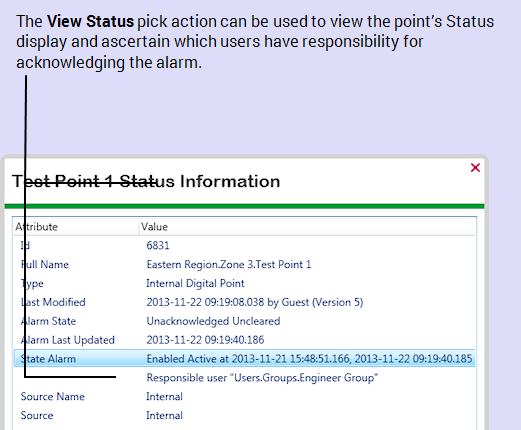
Should the alarm condition clear before a Duty Engineer acknowledges the alarm, the restriction is removed and any user that is allocated the Acknowledge Alarms security permission for the point can acknowledge the cleared alarm:
